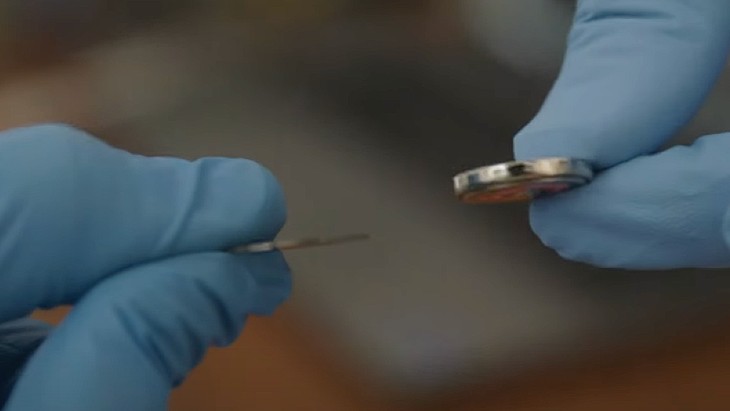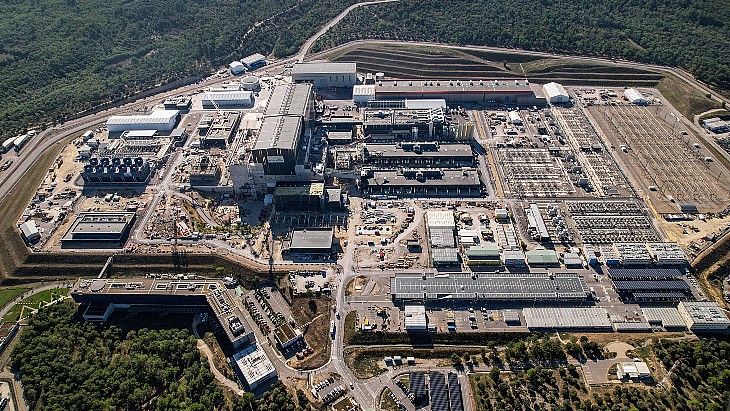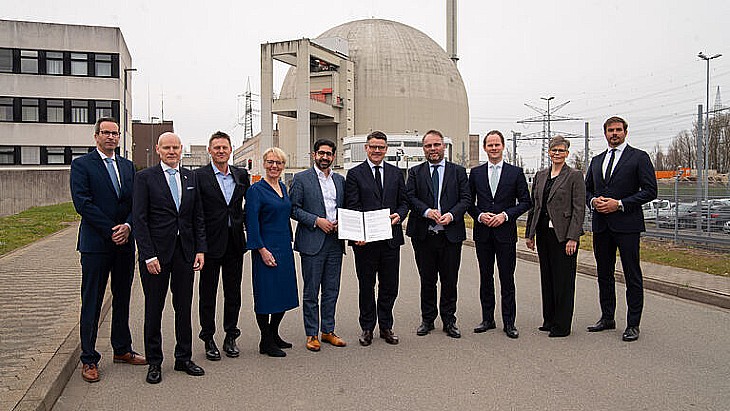Contracts awarded to accelerate UK's fusion industry
.jpg)
The contracts - feasibility studies from GBP50,000 up to GBP200,000 - are funded by the UKAEA's Fusion Industry Programme and awarded through the UK government platform Small Business Research Initiative.
The selected projects aim to tackle specific challenges linked to the commercialisation of fusion energy, from novel fusion materials and manufacturing techniques through to innovative heating and cooling systems, all needed for future fusion power plants.
Contracts have been awarded to start-ups, small-medium enterprises, established companies, and academia, with six of the 18 organisations receiving funding through the Fusion Industry Programme for the first time.
The latest contracts are the second part of the Fusion Industry Programme, following the first cycle of the Fusion Industry Programme in 2021. The programme - part of the government's GBP484 million support package for UK research, announced last year - was launched to drive long-term economic growth by developing technology and skills that can both support domestic programmes and be exported globally. The Fusion Industry Programme was allocated GBP42.1 million as part of this package to stimulate innovation and to accelerate the development of the fusion industry.
"As a growing industry, knowledge transfer from other technical and engineering sectors is vitally important to the fusion industry," UKAEA said. "Collaborating with wider industry allows a collective approach to tackling climate change issues and faster access to energy security."
"In the past 12 months we have seen significant advances both in the UK and globally that demonstrate the potential for fusion energy to be a safe, low-carbon and sustainable part of the world's future energy supply," said UKAEA Chief Technology Officer Tim Bestwick. "However, there are a number of significant technical challenges to address for fusion energy to realise its potential. The Fusion Industry Programme is helping engage organisations and industrial partners to stimulate innovation and address these important challenges."
Under one of the new contracts, engineering group Jacob will create a liquid lithium testing facility at its Technology & Innovation Centre at Birchwood Park, Warrington. Lithium is critical for breeding the hydrogen isotope tritium, an essential fuel for fusion.
"The new liquid lithium testing facility will serve developers of new fusion power technologies," said Greg Willetts, vice president for technology, consulting and innovation at Jacobs. "It will be an important addition to Jacobs' already considerable research capabilities, advancing our strategy to build an unrivalled understanding of the fusion fuel cycle from beginning to end, combined with advanced materials science capability and integrated engineering."
The UKAEA carries out fusion energy research on behalf of the UK government, overseeing the country's fusion programme, including the MAST Upgrade (Mega Amp Spherical Tokamak) experiment as well as hosting the JET at Culham, which is operated for scientists from around Europe. It is also developing its own fusion power plant design with plans to build a prototype known as STEP (Spherical Tokamak for Energy Production) at West Burton in Nottinghamshire, which is due to begin operating by 2040.











